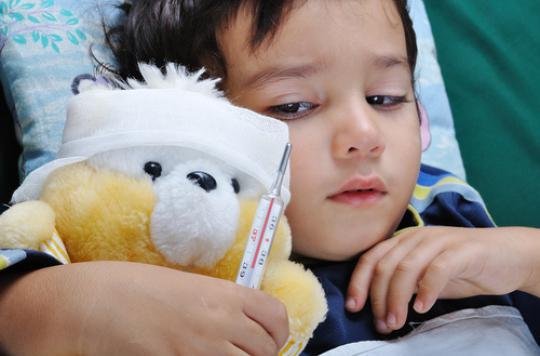Children’s immune systems are immature, and that’s why they’re sick so often, according to a US study.

Parents quickly realize this: family epidemics are often carried by children. Blame it on school, the privileged place of life and transmission of bacteria and viruses? Not necessarily, say researchers from the University of Iowa. In an article published in the journal Journal of Leukocyte Biology, they showed that the immune system of the youngest was not as efficient as that of the adults, and that it would be the main responsible for their vulnerability.
By carrying out experiments on mice aged three and eight to ten weeks respectively, they identified weak immunity in the former. When exposed to influenza, younger T cells secreted an antiviral, interferon gamma, in smaller amounts than their older counterparts.
These cells, which are the basis for the production of antibodies and therefore for the immune response, die in greater quantities. They are then less effective at clearing viruses from the lungs of infected organisms, and the disease is prolonged.
Adapt vaccines
“This new information is important because it shows that the mechanisms of immunity operate differently in young people,” says Dr John Wherry, editor of the Journal of Leukocyte Biology. Their difficulties in eliminating viruses have an impact on the duration of infections, and therefore on their ease of transmitting them to new hosts. “
With these new findings, researchers hope to understand mechanisms that could help support immune systems against common infections, depending on the age of patients. “We can also consider new approaches for current vaccines, since the immune systems of adults and children do not react in the same way,” adds Dr. David Verhoeven, researcher at the University of Iowa and head of the ‘study.
In the meantime, the usual recommendations are still valid: during an epidemic, it is better to advise your children to wash their hands regularly and to avoid physical contact with their classmates.
.














